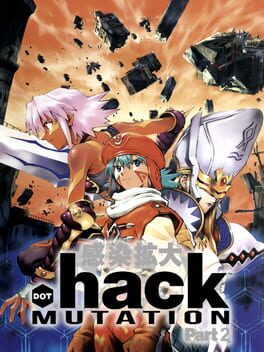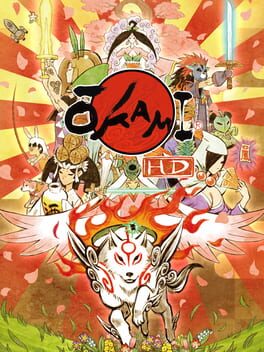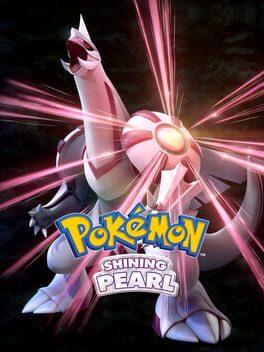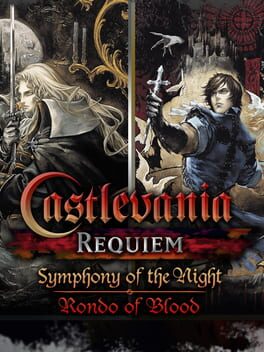VinnyOhGames
2002
This review contains spoilers
In its heyday, .hack Mutation may have packed a bigger punch, but I am definitely not feeling it. The first game's narrative presents a fascinating premise: an MMORPG goes wrong and players are being rendered comatose in real life by what seems like an infection in the game's data.
The first game supplied no answers, and this second entry just drags the main characters by the nose, clueless as to what was going on. As the player, I felt similarly dragged along only to encounter story beats with characters that sputter poetry or utter nonsense. Storywise, I was ultimately left unsatisfied.
.hack's gameplay remains much the same-- the grind of combat can feel good, until your party is rendered useless by status effects which you need to pause and select items to heal before you can carry on with combat. What bothers me the most about this is that I can heal a status effect and there is no window of invulnerability. There were battles where one of my party members would be rendered confused, I would act to heal them, only for them to become immediately, and I am not exaggerating, instantly rendered confused again. All of my deaths are attributable to these status stacks, and it really breaks up the otherwise enjoyable grind of dungeon plumbing to gain levels.
I am unsure if I will press on to part three but, since I have all four in my collection and I want to play GU someday, I feel obligated halfway in to see the series through. And I feel like series is a very strong word. This really is part two of the same game that Infection started.
The first game supplied no answers, and this second entry just drags the main characters by the nose, clueless as to what was going on. As the player, I felt similarly dragged along only to encounter story beats with characters that sputter poetry or utter nonsense. Storywise, I was ultimately left unsatisfied.
.hack's gameplay remains much the same-- the grind of combat can feel good, until your party is rendered useless by status effects which you need to pause and select items to heal before you can carry on with combat. What bothers me the most about this is that I can heal a status effect and there is no window of invulnerability. There were battles where one of my party members would be rendered confused, I would act to heal them, only for them to become immediately, and I am not exaggerating, instantly rendered confused again. All of my deaths are attributable to these status stacks, and it really breaks up the otherwise enjoyable grind of dungeon plumbing to gain levels.
I am unsure if I will press on to part three but, since I have all four in my collection and I want to play GU someday, I feel obligated halfway in to see the series through. And I feel like series is a very strong word. This really is part two of the same game that Infection started.
2018
How do you thaw a warrior's cold exterior? Well, God of War 2018 seems to think you do that by pairing him up with a plucky son and the disembodied head of a sage, and it turns out they weren't wrong.
God of War's story compels as much as its combat challenges. Throughout its thirty or so hours, you come to understand that Kratos' often brow-raising pessimism seems justified in a world of fickle and cruel gods. His son Atreus serves as a perfect complement. He is curious to their team's fault and benefit, given the situation. Though I did not take easily to God of War's frenetic and sometimes desperate combat, I was driven onward, propelled by the need to know if this father and son could overcome the challenges both before and betwixt them.
God of War's story compels as much as its combat challenges. Throughout its thirty or so hours, you come to understand that Kratos' often brow-raising pessimism seems justified in a world of fickle and cruel gods. His son Atreus serves as a perfect complement. He is curious to their team's fault and benefit, given the situation. Though I did not take easily to God of War's frenetic and sometimes desperate combat, I was driven onward, propelled by the need to know if this father and son could overcome the challenges both before and betwixt them.
2012
I am so glad that I finally played Okami. Even decades out from its initial release, this game's art style remains breathtaking.
Each character of the cast comes alive with their own quirky charm, though I confess that some of the material is a bit dated. That is to say, Issun being a pervert the entire time gets a bit grating and feels like an overtired caricature. Our lead, Amaterasu, makes up for it tenfold. It really does feel like you are embodying a god-- while she often tires of seemingly trite human issues, when real lives are at stake, she brings the fire of the sun down on her enemies.
Reaching the conclusion of this game is a spiritual experience, ratcheting up the stakes to otherworldly heights. I was heartily sorry to leave this painterly, long foregone Japan.
Each character of the cast comes alive with their own quirky charm, though I confess that some of the material is a bit dated. That is to say, Issun being a pervert the entire time gets a bit grating and feels like an overtired caricature. Our lead, Amaterasu, makes up for it tenfold. It really does feel like you are embodying a god-- while she often tires of seemingly trite human issues, when real lives are at stake, she brings the fire of the sun down on her enemies.
Reaching the conclusion of this game is a spiritual experience, ratcheting up the stakes to otherworldly heights. I was heartily sorry to leave this painterly, long foregone Japan.
2022
Tunic is an absolute pleasure to play. Combat is satisfying and often desperate-- I was consistently challenged by each of the bosses. The artwork is charming and the level of detail that went into crafting each of the puzzles is inspiring. It felt so good to require a pen and paper to figure out the more challenging mind-benders.
Gameplay-wise, a solid way to play a classic Pokémon game. Unfortunately it does little to elevate the original game. It is simply the best (and only thus far) way to play "old school" Pokémon game on the Nintendo Switch.
The art style is reminiscent of the DS era, but is uninspired and, at times, ugly.
The art style is reminiscent of the DS era, but is uninspired and, at times, ugly.





